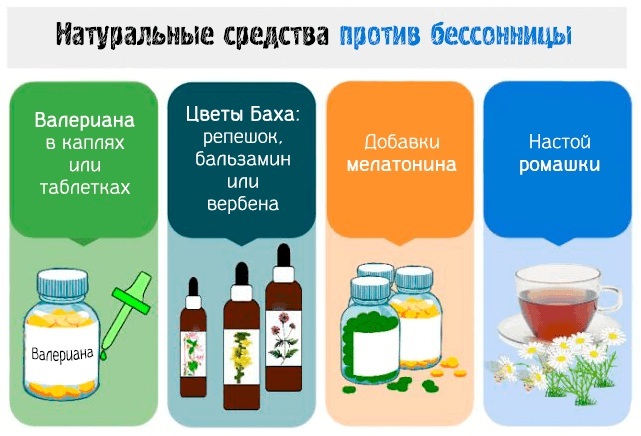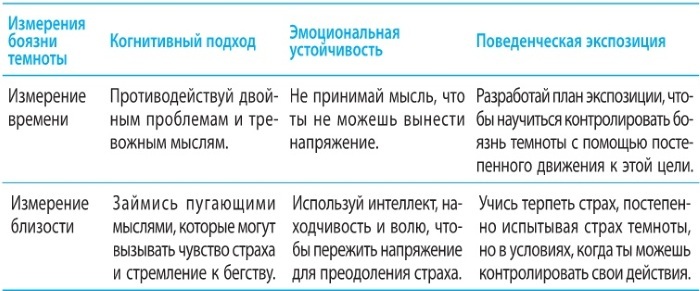Surely all heard glorified the milk in one well-known Soviet animated film, "Drink, kids, milk - be healthy! ». And you can not argue with the fact that children's milk, especially cow's milk, is vital. But it is necessary to cow's milk to adults? After many rumors that only children are capable of carrying this product.

production technology
The shops milk is sold in various forms:
- UHT milk. Ultrapasteurized milk involves disposable heating to 125-150 ° C for 2-3 seconds in order to destroy all microflora inhabiting the raw milk. Due to the complete disinfection and sealed package, ultra-pasteurized milk can be stored for more than 6 weeks. The technology of preparation of milk reliably leads to destruction of vitamins of group B (particularly suffers B6), protein denaturation and modification calcium formula. In general, when ultra-pasteurization milk cow loses almost everything for which he valued people. Well, except for the taste, of course. Otherwise it would be no one to buy, and therefore, did not produce.
- Pasteurized milk. Pasteurized milk - a milk that once exposed to one of three methods of heat treatment: prolonged treatment (heating to 63-65 ° C for 30-40 minutes); short treatment (heating to 85-90 ° C for 30-60 seconds); instantaneous treatment (heating to 98 ° C for a few seconds). The term "pasteurization" is derived from the names of Louis Pasteur microbiologist who invented the concept of partial decontamination liquid products in the middle of the 19th century. Pasteurization allows to destroy most of the action of microorganisms inhabiting the milk, but can not help with their spores, which are to create favorable conditions for them to begin to develop very quickly and multiply. With regard to the nutritional value of pasteurized milk, it is, according to most scholars, remains virtually the same. I agree with this extremely difficult because the proteins, vitamins and minerals is very moody and easily change their connection, forms and formulas. This is clearly illustrated by the same calcium, which passes from the ionic form to a molecular ceases and digested at 65 ° C. The same can be said about the proteins that begin to melt at 70-75 ° C.
- Whole milk. The starting material for all kinds of dairy products is whole milk, which is an entirely natural milk. Over whole milk is not allowed any manipulation except straining (to get rid of lice and debris caught in the milk during milking). If the milk is diluted, degreased, evaporated or changed in some other way, thereby changing its natural composition, the whole milk is called anymore. At best, it turns into liquid milk, and at worst - in a milk product. As you can imagine, whole milk can be found today only on dairy farms and in rural areas. The stores also we will only normalized drinking milk, which artificially adjusted protein and fat level. And all dairy products, falling today on the shelves, are heat-treated with different duration at a temperature of from 60 to 150 ° C and fall into the category of pasteurized or UHT.
- Degreasing. Thanks to the advertising in the food industry in recent years has successfully sold products labeled "low fat" or "fat-free". The world is wide promotion of the consumption of low-fat milk and dairy products. But the truth is that only full-fat dairy products contain fat soluble vitamins D, A and K, which promote the effective absorption of calcium. When you consume skim milk lost symbiotic relationship between these elements and calcium can not be assimilated by the body.
Useful properties of milk
One hundred years ago was born "tradition": milk were given to those who work in hazardous environments. But the evidence of this, it eliminates the negative impact of factors on the body, no. Most likely, they betrayed him because of that compensate for the lack of nutrients.
Conventional medicine claims that milk:
- a cure for the common cold (e.g., milk with honey) due to immunoglobulin, and milk with soda makes cough;
- generally has a positive effect on health;
- saves from edema;
- reduces the risk of cardiovascular diseases;
- reduce the negative effects of salt and acidic foods;
- prevents cancer;
- calming effect on the nervous system and help with insomnia;
- reducing the risk of diabetes;
- decrease the risk of osteoporosis.

The milk also contains biologically active elements such as antibiotics and antibodies, hormones and enzymes. So, what is useful for us to milk:
- Vitamin D helps our body absorb calcium and phosphorus and is essential for maintaining the health of the bones and teeth;
- Vitamin A is necessary for good vision and healthy skin;
- contained in milk folic acid is essential during pregnancy, it helps a long time to maintain a healthy complexion and good muscle tone;
- B vitamins prevent stress and depression, increases efficiency and eliminates the fatigue, as well as struggling with acne and dandruff;
- the amino acids phenylalanine and tryptophan, which are included in the milk composition, have a light sedative and soporific effects;
- globulin contained in milk, increases immunity and has the property successfully deal with all sorts of infections;
- milk reduces the acidity of gastric juice and thus can serve as a means of heartburn;
- metabolism helps control the cobalt, which is also present in milk;
- lactose contained in milk are less sweet than sucrose. It stimulates our nervous system, improves cerebral blood circulation and is both preventive and remedy for various kinds of cardiovascular diseases. When the digestion of lactose lactic acid is formed, which has a bactericidal property, and improves the absorption of calcium, potassium and phosphorus, which have beneficial effects on the musculoskeletal apparatus.
Especially useful probiotic dairy products and whey proteins: with immunostimulatory properties are effective against cancer cells. Deemed useful and other dairy products. The melted milk a lot of vitamin D, and its shortage causes rickets in children.
Medicinal properties is credited with curdled milk. It is believed that it improves bowel and other digestive organs, normalizes microflora. Curdled prescribed for gastritis, colitis, constipation, and seen its benefits for the heart, blood vessels. A common cold milk product not only drink, but also make him compresses.
When the milk can be harmful?
The milk contains casein - individual protein species which each species of animal or human is different in its structure. To assimilate casein in the stomach in animals is produced by a special enzyme called renin. A similar enzyme is absent in humans. When receiving this natural substance newborn casein digests using special bacilli, it is produced in the maternal milk glands and acts together with the milk in the infant body.
During the study, British scientists have identified a category of people who drink milk are contraindicated.
- People over 50 years. The majority of people in the age of Incline developing atherosclerosis, and milk only contributes to this, as it contains acid, which plays an important role in the development of the disease. In addition, the body's ability to process milk with age is significantly reduced, so after forty years is better to restrict the drink a glass a day.
- People with lactose deficiency. Even 100 ml of this drink immediately cause the body bloating, cramps, and soon after liquid stools. The reason is lactose deficiency in the body, which is responsible for the processing of milk sugar.
- Allergy sufferers. Milk antigen "A" can cause itching, rashes and even asthma attack.
- Also, milk is harmful to those who do have problems with the stomach and intestines. Actually, each for himself determines the most favorite food. Drink or maybe not drink milk - it is personal preference, but it is important to a clear understanding of what is the benefit and harm of milk to use it was really enjoyable.
Thus, people who are not suffering from any disability can safely drink milk - it will not do them any harm, except that the extra weight. But if the body is suffering one of the disorders listed above, the milk should be abandoned.

Cow's milk children: benefit or harm?
For many years, cow's milk is considered the best nutrition for babies whose mothers were unable to feed them to their breast milk. However, the latest studies show that infants with cow's milk is not as useful and safe as previously thought.
Of course, cow's milk contains many useful elements. However, this composition of the milk does not benefit the body baby, as he is not able to absorb these substances.
- Too high content of casein in cow's milk protein can cause allergic reactions;
- The enzymes contained in cow's milk, are not correct for the child. Therefore, his body will not be able to grasp the end of this food, and undigested food residue will irritate the intestines baby.
- The amount of vitamins and iron in cow's milk is not sufficient for the growing organism;
- Minerals in cow's milk, on the contrary, too much. Therefore, feeding cow's milk can cause excessive load on the child's kidneys.
- Too high a fat content of cow's milk causes an overload of the body of the child.
For the reasons listed above, modern doctors do not recommend to feed the children with cow's milk up to 2 years. Ideal food for these children is breast milk, and in case of impossibility of breast feeding you must find the right mix, whose composition is as close to the composition breast milk.
Storage of cow's milk
Shelf life milk depends on the method of its treatment, packaging and temperature. Raw milk at 1-2 ° C is kept for two days, 3-4 ° C - about fifteen days, 4-6 ° C - day, 6-8 ° C - 18 hours, and at 8-10 ° C - total 12 hours .
Useful tips on storage of milk:
- The store is best to put the milk in the food basket last to avoid a long stay in the warmth. Upon returning home, you need to place it in the refrigerator immediately.
- The refrigerated milk is stored at optimum temperature 0-4 ° C, is not used for this door.
- Autopsy milk can be eaten in 3 days, kept closed and away from products with strong odor.
- For the storage of milk is best to use the original packaging, glass or ceramic container.
- Avoid contact with the product of light, because it destroys riboflavin and vitamin D.
- Freeze milk preserves its nutritional and taste properties for a long time, defrosted milk is needed in the refrigerator.
Frozen cow's milk during thawing often subject to delamination. In this case it is enough to shake up his blender to return to the ordinary kind.



